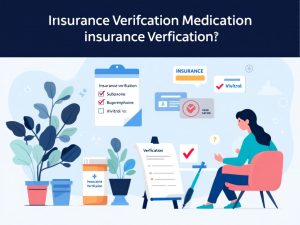If you or a loved one is coping with substance use challenges, you may be exploring residential addiction rehab as a powerful step toward renewed health and hope. This form of long-term treatment is designed to provide you with a structured, stable environment where you can gain the support, tools, and confidence necessary to navigate life free from drugs or alcohol. In residential rehab, you become part of a community that encourages honest dialogue, deeper self-exploration, and meaningful connections with peers and professionals alike. By removing harmful triggers and addressing the underlying emotional or behavioral issues fueling your addiction, you can gradually create a foundation for sustained change.
For many individuals, the decision to pursue residential rehab is not taken lightly. It often involves an in-depth consideration of personal needs, existing responsibilities, and any co-occurring mental health conditions. Residential programs can range in duration from a few weeks to several months or more, though research indicates that longer stays often correlate with better outcomes. According to data compiled by American Addiction Centers, treatment lasting 90 days or more enhances your likelihood of maintaining sobriety after completing the program. From supportive therapies and 24/7 medical supervision to skill-building exercises and peer support, every aspect of residential rehab is intended to facilitate meaningful recovery—which can open new doors to a brighter future.
Below, you will find detailed discussions about the importance of specialized care, the key elements of a comprehensive residential program, and why continued support beyond residential rehab matters. While this article highlights the benefits of a supervised, structured environment, remember that a continuum of treatment options—including outpatient services—can help you sustain progress. At Epic Health Partners, we understand that each journey is unique, and we are dedicated to offering a full range of outpatient programs, from intensive outpatient program iop to partial hospitalization program php, so that you can find the perfect fit for your recovery goals.
Recognize the importance of specialized care
You may already be aware that substance use disorders often stem from complex factors, including genetic predisposition, environmental stressors, and co-occurring mental health conditions. Recognizing the importance of specialized addiction care is the first step in securing effective, long-lasting recovery. While outpatient therapy or support groups can be beneficial, a residential program offers an immersive, round-the-clock approach that focuses on addressing the root triggers of your addiction.
Address the complexity of addiction
Addiction rarely exists in isolation. Challenges such as depression, anxiety, or post-traumatic stress may further complicate recovery. Residential programs generally include medical professionals, therapists, and support staff trained to provide individual attention. This comprehensive network allows you to focus on each aspect of your well-being—physical, mental, and emotional—in a supportive environment. A study from NCBI Bookshelf underscores that substance abuse treatment is most successful when it extends beyond short-term stabilization and tackles the emotional and behavioral drivers that contribute to addiction.
Emphasize a tailored approach
A crucial hallmark of specialized care is tailoring treatment to individual needs. Some people respond best to holistic methods, like yoga or art therapy, while others may thrive under structured group counseling. Many residential rehabs also incorporate evidence-based methods such as cognitive behavioral therapy cbt or dialectical behavior therapy dbt. According to the Substance Abuse and Mental Health Services Administration, the more individualized the treatment plan, the higher the likelihood of achieving and maintaining sobriety.
Safeguard your recovery environment
When you are in an environment that limits distractions and eliminates immediate triggers, you can more effectively focus on developing new coping strategies. Studies from The Recovery Village note that inpatient or residential settings may be especially beneficial for those with severe dependencies, as these programs remove the daily pressures of the outside world—allowing you to devote your energy to healing and transformation.
Understand the value of long-term treatment
Residential addiction rehabilitation often involves staying in a treatment facility for an extended period, giving you enough time to unlearn destructive behaviors, practice coping mechanisms, and begin to implement new life skills. Data from American Addiction Centers reveals that longer treatment durations—90 days or more—consistently show more effective outcomes compared to shorter stays. Why does long-term treatment matter so much?
Solidify new habits
Learning healthier ways to manage stress, anxiety, or cravings takes time. By staying in a residential program for multiple weeks or months, you gain the repetition and consistent support needed to reinforce these new pillars of behavior. Without sufficient time to practice these skills in a safe environment, there is a greater chance of relapse once you transition back to everyday life.
Introducing structured routines
Long-term residential models are often built on structured daily routines. From early morning wellness activities to scheduled therapy sessions and group discussions, each element is methodically designed to encourage progress. This structure instills discipline, reveals personal triggers, and steadily guides you toward healthier habits. The Substance Abuse and Mental Health Services Administration reports that more than 95 percent of people who needed drug rehab in 2023 did not receive it, underscoring the importance of seeking high-quality care for an appropriate length of time.
Prepare for future challenges
When you walk away from a residential program, you will inevitably encounter situations that test your newfound boundaries. Long-term treatment prepares you for these challenges using realistic scenarios and role-playing exercises. Therapists help you identify potential setbacks and create clear relapse-prevention strategies. Consistent peer involvement offers feedback and encouragement. By the time you leave, you are more confident in your ability to navigate life’s curves without resorting to substance use.
Key elements of a residential program
Every residential addiction rehab facility is unique. However, certain core elements are widely recognized as key to effective treatment. By knowing these essential features, you can make a more informed decision about where to receive care and how that care might look:
1. Comprehensive assessment
A thorough assessment typically takes place at intake. You might undergo medical evaluations, psychological testing, and a full review of your substance use history. These findings shape your personalized treatment plan, ensuring that any co-occurring disorders—like depression, anxiety, or bipolar conditions—are addressed systematically. Depending on your results, you might also begin medically supervised detox under professional care.
2. Evidence-based therapies
Many successful programs rely on validated treatments such as cognitive behavioral therapy cbt, motivational interviewing therapy, or trauma informed counseling. Research affirms that employing evidence-based therapies can significantly increase the likelihood of lasting sobriety. Some centers also integrate holistic wellness approaches like yoga, meditation, or music therapy, offering alternate ways to manage stress and build self-esteem.
3. Peer support and community
One of the greatest advantages of residential care is the camaraderie it fosters. Living alongside others who share similar experiences often results in a sense of belonging and mutual accountability. Group therapy sessions, communal meals, and recreational activities help solidify this bond. Studies have shown that strong social support can lower stress levels, decrease feelings of isolation, and reduce relapse rates.
4. Focus on life skills
Residential rehab is about more than just detoxification. Many programs place emphasis on developing basic life skills, a critical element for sustained recovery. These may include budgeting, stress management, effective communication, and more. For instance, some treatment plans incorporate relapse prevention planning, offering lifelong tools to anticipate triggers, handle unexpected stressors, and maintain healthy boundaries.
5. Continued medical oversight
In a residential setting, you often have ongoing access to medical professionals who can monitor how certain treatments or medications affect your progress. If you need medication management for anxiety, depression, or other mental health issues, you have immediate guidance to adjust dosages or explore new options if a certain medication proves less effective. This real-time medical oversight helps guard against complications that can arise from withdrawal, medication side effects, or co-occurring diagnoses.
Life after residential rehab
Completing a residential treatment program marks a major milestone in your journey toward sobriety. However, as crucial as this step is, aftercare and continuous support remain vital for ongoing success. According to Rehabs.com, outcomes are best when formal treatment extends a minimum of three months or is followed by outpatient therapy. By layering these steps, you strengthen the foundation you built in residential care.
Embrace outpatient care
You might opt for an intensive outpatient program iop or partial hospitalization program php if you still need a structured approach, but also require some flexibility to manage work, school, or family obligations. Many individuals transition to substance use outpatient therapy or outpatient drug counseling as they step back into day-to-day life. Such programs help you balance real-world responsibilities with consistent treatment.
Engage with telehealth services
Over the past few years, technologies like video counseling and remote check-ins have increased treatment accessibility. Telehealth therapy services and telepsychiatry services can be a game-changer if you live in an area with limited in-person visits or have difficulty commuting. You can even schedule virtual psychiatric evaluations or join online peer support groups, ensuring continuity of care.
Consider mental health follow-ups
If you have co-occurring mental health issues, consistent follow-up can significantly impact your long-term outlook. Seeking psychiatric evaluation outpatient sessions, maintaining medication management, and exploring additional therapies—like family counseling mental health or group therapy mental health—all help solidify the emotional and psychological progress you made during residential rehab. Conditions like bipolar disorder, depression, or anxiety can require ongoing attention to avoid relapse or complications.
Strengthen community connections
Continuing care also involves nurturing the relationships you built in rehab and fostering new, sober friendships in your hometown. Look for local recovery groups or community-based health services, such as community stabilization services, to maintain a sense of structure. By staying in close contact with a recovery community, you have an enduring support network that cheers on your milestones and helps you weather tough moments.
Why choose Epic Health Partners
When you are ready to take the step into residential care—or transition from a higher level of care into an outpatient program—Epic Health Partners can provide the personalized support you need. We offer a wide array of evidence-based approaches and programs that address both substance use and co-occurring psychiatric conditions. Here are just a few reasons why we stand out:
Holistic and flexible treatment
You deserve a treatment plan that adapts to your lifestyle and specific challenges. At Epic Health Partners, we guide you in selecting the best path forward, whether that involves a step-down from residential rehab to our sud intensive outpatient program or sud partial hospitalization program. We also provide holistic resources, such as yoga art therapy music therapy and holistic wellness support, designed to heal mind and body.
Expert staff and collaborative care
Our dedicated providers foster an environment of empathy and collaboration, recognizing that each individual has a distinct journey. If you are looking for specialized help in handling co-occurring conditions, our dual diagnosis treatment or co occurring disorders treatment can help you navigate both substance use and mental health in tandem. Additionally, we feature services like motivational interviewing therapy and trauma informed counseling—keys to unlocking the mental and emotional hurdles that can impede recovery.
Accessible and continuous support
Recovering from addiction is not a one-time event but a continuous process. Alongside the support you receive during residential addiction rehabilitation, we ensure you have access to ongoing services like case management sud, aftercare planning, and structured relapse-prevention strategies. Our system includes telehealth therapy services for individuals who need flexible scheduling or who live in remote areas.
Comprehensive crisis services and intervention
Life can take unexpected turns, which is why Epic Health Partners offers comprehensive crisis services, suicide crisis intervention, and immediate care options if you experience a precarious moment in recovery. Whether you need short-term stabilization or something more ongoing, having a trusted provider ready to assist can make the difference between navigating a crisis safely and a potential return to alcohol or drugs.
Encouragement for a brighter future
At heart, Epic Health Partners is motivated by seeing you build a life free from the limitations of addiction. We want you to feel capable of reclaiming your relationships, pursuing your personal goals, and rediscovering a sense of physical and emotional well-being. When you choose us, you choose an ally devoted to helping you sustain change long after your residential stay ends.
Frequently asked questions
1. What is residential addiction rehab?
Residential addiction rehab refers to a structured, round-the-clock program where you live in a treatment facility for a set duration. This environment typically includes professional medical supervision, evidence-based therapies, and a supportive peer community. It allows you to focus on your recovery without everyday distractions or triggers, laying the groundwork for sustained behavioral change.
2. How long should I stay in a residential program?
While individual needs vary, research from American Addiction Centers and Rehabs.com suggests that staying in treatment for 90 days or more generally leads to better outcomes. Extended care provides time to solidify coping strategies, break harmful patterns, and address any underlying issues—making it more likely you will maintain sobriety afterward.
3. Will insurance cover residential rehab?
Many insurance plans partially or fully cover inpatient rehabilitation, including those from major providers like Blue Cross Blue Shield, Aetna, Anthem, Cigna, or Humana. Medicaid programs may also help with rehab costs. Confirmation of benefits through your provider is the best way to understand the details of your coverage.
4. What happens after completing residential rehab?
Residential treatment is the beginning of sustained recovery. After completing a program, you can transition into outpatient care, such as an intensive outpatient program iop or substance use outpatient therapy. Many people continue to work with counselors, psychiatrists, or peer support networks to maintain their progress and reduce the risk of relapse. A good facility will help arrange aftercare planning to keep you supported.
5. How do I handle relapse fears?
Relapse is sometimes a part of the recovery process, especially for chronic conditions like substance use disorder. The important thing is to have a plan in place. Strategies like relapse prevention planning, regular check-ins, peer support groups, and ongoing therapy are valuable. Epic Health Partners can help you design and maintain such plans, as well as provide immediate assistance through our comprehensive crisis services if anxieties escalate.
Residential addiction rehab is often a turning point in the journey away from substance dependence. By choosing a longer-duration program and pairing it with a dedicated, holistic approach, you enhance your odds of sustaining a life free from drugs and alcohol. At Epic Health Partners, we stand ready to support you every step of the way, from initial psychiatric evaluations to outpatient therapy and telehealth services. Together, we can illuminate a path to renewed confidence, emotional balance, and the bright future you deserve.







